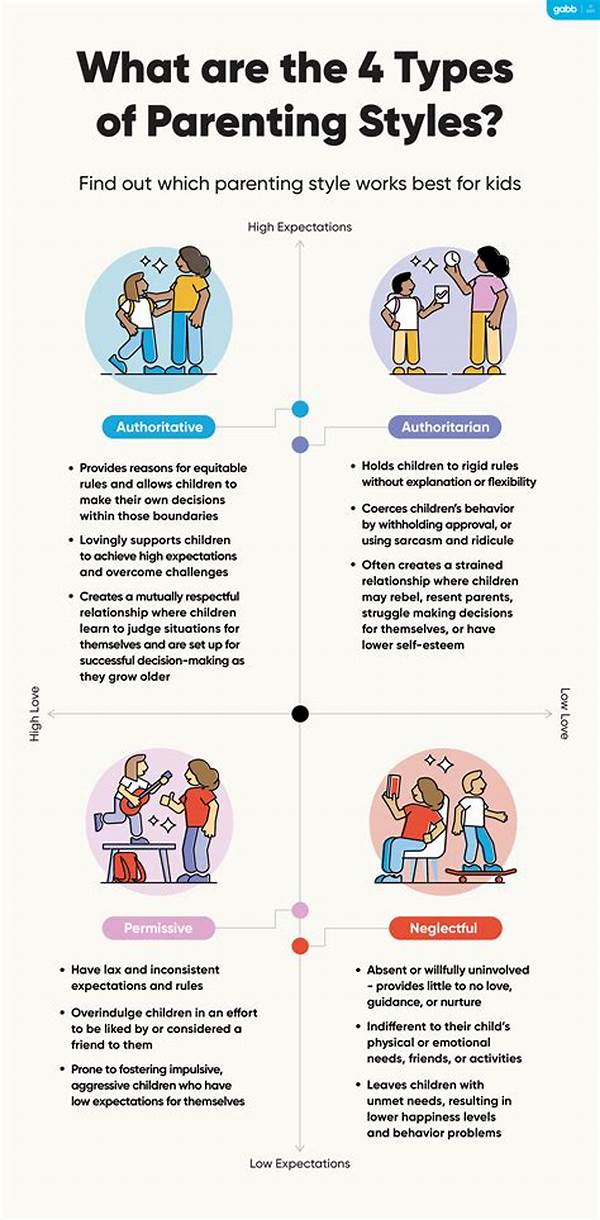In a world where childhood anxiety is alarmingly on the rise, a groundbreaking study has just shaken the parenting community. Researchers have recently discovered that a specific, popular parenting style can significantly alleviate anxiety symptoms in children. But what is this magical parenting approach, and why should you, as a savvy parent or caregiver, pay attention? Hold onto your seats because this article has the inside scoop that could change your family life for the better. In funny and relatable language, we’ll explore not just the facts, but how this exciting discovery can positively impact your children’s mental well-being and your household’s vibe.
Read More : Why Your Child Won’t Clean Up: The Shocking Reason Most Toy Storage Fails (montessori Fix)!
Picture this: A chaotic morning with kids running around, running late for school, and breakfast turning into a scrambled mess. Anxiety levels are peaking, not just for the kids but for you too. What if the secret to a calmer morning and a happier family in the long term lies in a particular parenting technique? Get ready for the new research alert: this popular parenting style is proven to reduce childhood anxiety! Studies show that adopting this approach not only helps reduce anxiety symptoms in children but also builds stronger, healthier family bonds. Curious yet? Let us take you through the discovery that’s poised to become a game-changer for parents everywhere.
Understanding the Benefits of Responsive Parenting
The latest research highlights that responsive parenting, a style characterized by warmth, nurturing, and attentiveness, plays a crucial role in reducing anxiety symptoms in children. Picture a warm hug from a loving caregiver — that’s essentially what responsive parenting feels like for kids. By acknowledging children’s emotions and responding to their needs with care, this parenting style crafts a safe haven where children feel understood and supported. Consequently, anxious feelings are gradually replaced by a profound sense of security and self-assurance.
Responsive parenting stands out in its effectiveness because it encourages open communication and emotional validation. Creating an environment where children are allowed to express their thoughts freely and constructively can work wonders on their confidence levels. It is this active form of engagement in a child’s emotional world that makes responsive parenting a game-changer. The new research alert: this popular parenting style is proven to reduce childhood anxiety is more than just a headline — it’s a call to action for parents who want to foster a loving and secure home environment.
Unpacking the Research: What Makes This Parenting Style Effective?
Breaking down the layers of this revelation, the research derives its effectiveness from the connectivity it fosters between parent and child. When children feel seen and heard, they develop better emotional regulation capabilities, which leads to lower anxiety levels. Parents adopting this style can benefit from various mental health improvements among their children and, let’s be honest, even in themselves. Because who doesn’t want a little more peace of mind in this fast-paced world, right?
The scientist behind the study explained that when parents practice responsive interactions, children tend to exhibit fewer signs of stress and anxiety. It’s the consistency of these interactions that builds a protective layer over children’s mental health, making this method not just a trend but a sustainable lifestyle change. Excited to dive into this transformative parenting style? Stay tuned for more insightful breakdowns in this blog as we continue exploring why new research alert: this popular parenting style is proven to reduce childhood anxiety is all the rage this year.
For parents and caregivers searching for a solution that’s both scientifically backed and easily integrated into daily life, this new research holds promising implications. Embrace the change by incorporating strategies that focus on empathetic listening and emotional support. The benefits observed in children aren’t just temporary — they promise a future where mental well-being is at the core of family dynamics. So here’s a toast with your stress-relieving chamomile tea: to happier mornings, fewer tantrums, and a parenting style that’s nothing short of revolutionary.
Practical Actions You Can Take
1. Consider transitioning to a responsive parenting approach for improved familial relationships.
2. Embrace active listening to help your children feel heard and supported.
3. Focus on providing emotional validation for your child’s experiences.
4. Encourage open dialogue about feelings and emotions to enhance emotional intelligence.
5. Create a consistent daily routine that incorporates time to engage with your child meaningfully.
6. Educate yourself on the components of responsive parenting and actively apply them.
7. Use positive reinforcement to boost your child’s self-esteem and confidence.
8. Introduce mindfulness practices into your routine to promote calmness for both parent and child.
9. Pay attention to cues from your child and adjust your parenting style accordingly.
10. Seek out additional resources or workshops focused on responsive parenting to refine your approach.
Embrace the shift towards a more engaged and nurturing parenting style, not just for reducing anxiety but for healthier overall development. This approach isn’t just about problem-solving; it’s about creating a future where warm, compassionate relationships are at the forefront. Get ready to witness transformation within your family, starting with this actionable insight into a parenting revolution. Kids and parents alike deserve harmony and a lasting sense of security. And with this newfound knowledge, the journey can be both exciting and rewarding.
By adopting the insights from this new research, you’re not only choosing a parenting style — you’re setting the stage for your child’s resilience and success in today’s unpredictable world. Whether it’s fostering emotional intelligence or establishing strong parent-child bonds, the decision to embrace this approach could be a turning point. Here’s to laying the groundwork for a brighter, more confident future.
